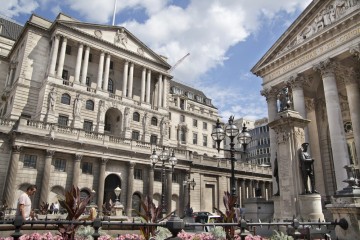Falling oil prices leads to decline in UK inflation
Our news section is no longer updated. This article is over 6 years old.
Falling oil prices, prices wars among Britain’s supermarkets and utility bill price freezes have all contributed to inflation dropping below 1% in the UK, official figures are expected to reveal in the next 24 hours.
With a target of 2%, the governor of the Bank of England may be forced to write an open letter to the chancellor as inflation drops to just 0.7%, the lowest figure since the Bank of England became independent in 1997.
While letters have had to be written in the past, that has been due to inflation being more than 1% over the target amount, rather than under.
Prices are not expected to halt their decline either, with budget supermarkets becoming more popular and oil prices predicted to continue to fall. However, the figure may not fall as dramatically as massive discounts experienced in December return to normal price.
This news means that, with the UK economy still in the balance, interests rates may be held longer at 0.5% and some experts are predicting that a rise in 2015 is now becoming decreasingly likely.
It was only a few years ago that motorists were fearing fuel prices about to rise past £1 per litre and now they are cheering as prices look set to drop below that figure.
With declining oil price also decreasing the cost pressures on businesses around the world, optimism remains high in the UK with employment figures remaining encouraging as we move into 2015.
Speaking to the Guardian, finance expert Tim Hinton at Lloyds Banking Group said: “Firms across England and Wales remain in expansion mode, but there are signs that the recovery slipped down a gear at the end of 2014. Global economic uncertainty is affecting firms’ confidence to invest and ability to grow, but falling oil prices may start to ease cost pressures for companies and help support consumer spending in the months ahead.”


